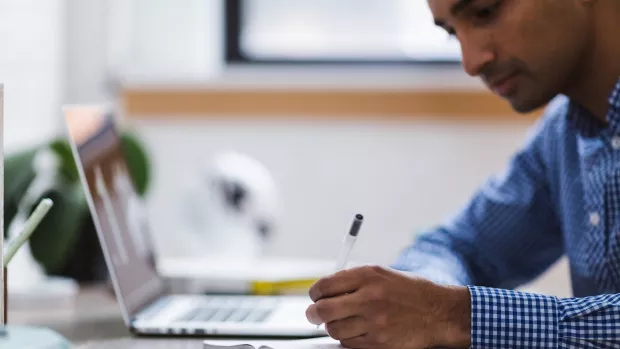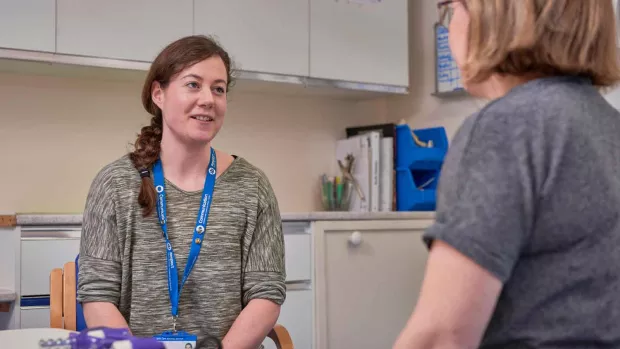
Helping people with MS stay in work: researching a personalised programme
Dr Blanca de Dios Pérez is a postdoctoral Research Fellow at the University of Nottingham. She researches how best to help people with MS stay in work as long as they'd like. Her programme offers advice on different aspects of staying in work.
I’m passionate about MS research because, since I was a child, I’ve known several people living with MS. But I never truly understood what ‘living with MS’ meant until I started studying how health conditions can affect a person’s quality of life.
Over the last eight years, I’ve worked with people with MS on a wide range of topics. I noticed a recurrent theme. It was ‘work’.
Work not only offers financial security but can be an essential part of our identity and a human right. Many of the people with MS I spoke to for my research were truly passionate about their work. Conversations frequently centred around their jobs. But I came to understand people living with MS face specific challenges staying in work.
A personalised programme of support
In my PhD I developed a vocational rehabilitation programme, to help people with MS remain at work for as long as they wish.
People received a personalised package of support over three months. It addressed the topics most relevant to helping them remain at work. We know generic information can be hard to apply to your personal circumstances. So I used my specialist training as a psychologist and held one-to-one sessions on the phone or online.
The programme included help with:
- empowerment to self-manage their symptoms at work
- learning ways to tell employers or co-workers they have MS
- navigating difficult situations, such as understanding their legal rights.
At the end of the programme, the 15 people who took part achieved their work-related goals. They also reported feeling more confident and knowledgeable about their MS, particularly in how to explain their needs to others.
Over the last eight years, I’ve worked with people with MS on a wide range of topics. I noticed a recurrent theme. It was ‘work’.

Making the programme accessible
Now I want to know how that programme could be included in NHS services for people with MS. I’m working with occupational therapist Professor Kate Radford on a research project funded by the MS Society to find this out.
We want to know how best to train NHS professionals, such as occupational therapists, to deliver the programme. And how to tell people with MS about the programme. For example, if it should be shared at their annual appointment with their neurologist or MS nurse.
We’ve recruited 15 people already and we hope to have some findings to share by the end of the year. We hope to shed light on how everyone with MS can be offered advice to manage MS at work. And how to manage difficult conversations with their employer or co-workers.
If we can understand more about the current barriers, in the future we hope our programme can be routinely offered and delivered in the NHS.
This article first appeared in MS Matters: Autumn/Winter issue 2023


